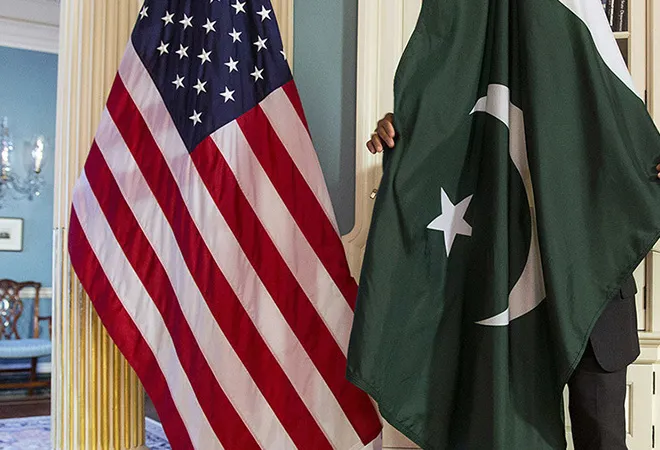Pakistan has initiated diplomatic discussions with Washington through its embassy to address the implications of US President Donald Trump’s recent reciprocal tariff announcement, Business Recorder reported citing sources in the Ministry of Commerce.
The government is in active contact with the Trump Administration to seek a trade that benefits both sides, with a delegation led by the Commerce Secretary set to visit Washington once meetings are arranged. The talks come after the US President decided to pause the implementation of the increased tariffs for 90 days, offering a window for renegotiation of trade deals.
The issue of the reciprocal tariffs was also raised with a visiting US Congressional delegation. The Ministry of Foreign Affairs is maintaining diplomatic engagement with Washington on the matter.
The Ministry of Commerce has submitted proposals to Prime Minister Shehbaz Sharif, who has returned them with suggestions for further revision. Finance Minister Muhammad Aurangzeb is also in consultation on the issue.
The government is also holding discussions with key industry sectors that may be affected by the tariffs, with early assessments suggesting that Pakistan’s exposure is less severe compared to other countries like Turkey, which faces a higher tariff on denim exports to the US.
Officials from the Ministry of Commerce have stated that Pakistan is focused on ensuring its economic relationship with the US remains strong while mitigating the impact of the proposed tariffs. However, the full strategy for addressing the tariff issue remains confidential for now.
In a policy note titled “Impact of Unilateral Tariff Increase by United States on Pakistani Exports,” the Pakistan Institute of Development Economics (PIDE) warned that the proposed 29% reciprocal tariff, when added to the existing 8.6% Most Favoured Nation (MFN) tariff, could bring the total duty to 37.6%.
This increase would likely result in a 20-25% reduction in exports to the US, with losses potentially ranging from $1.1 billion to $1.4 billion annually. The textile sector, already grappling with high tariffs, is expected to be particularly affected.
However, the Ministry of Commerce disagrees with including the 8.6% MFN tariff in the reciprocal tariff calculation, pointing out that MFN tariffs are subject to World Trade Organization (WTO) regulations, which the US adheres to.
Despite the concerns, Pakistan’s trade with the US remains strong, with bilateral trade reaching $5.54 billion in the first nine months of FY 2024-25, up 15% from the same period in the previous year. Pakistan’s exports to the US grew by 12%, while imports from the US saw a 28% increase. The trade surplus between the two countries has increased by 7%, reaching $3.15 billion.




